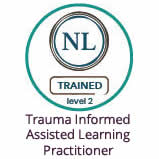
The Power of Authentic Listening and Feeling Heard
In today’s fast-paced world, effective communication is more important than ever. Yet, despite our constant exchanges of words, many conversations leave us feeling unheard and misunderstood. Authentic listening, coupled with the ability to make others feel heard, is the key to nurturing healthy relationships and developing connection in all aspects of life. I want to encourage you to explore with me the transformative power of genuine listening and offers insights into how we can use applicable tools when working with individuals who have experienced trauma or emotional wounds. Based of my professional and personal experience I have discovered that there are there at least three levels of listening.
Level One: Listening to Words
When engaging in a conversation, we often focus solely on the words being spoken. While words are essential for conveying information, they only scratch the surface of true communication. Paying attention to this level is important, but it’s equally vital to delve deeper into the realms of emotions and underlying meanings.I’ll share some tips in how to do this in this blog.
Level Two: Listening to Emotions
To truly understand someone, we must learn to listen not only to their words but also to the emotions behind them. Emotions serve as the driving force behind our communication, revealing our fears, joys, frustrations, and worries. By actively sensing the emotional tone in someone’s words, we gain deeper insight into their thoughts and experiences. Next, you can ask discovery questions to encourage the person you are talking to notice their own emotions. Are they expressing frustration, worry, excitement, or something else entirely? Acknowledging and empathizing with their emotions enhances our connection with them.
Level Three: Listening to Essence
At the third level of listening, we transcend words and emotions to uncover the essence of a person’s communication. This requires us to quiet our own internal dialogue, set aside our preconceived notions, and remain fully present and open to the other person. By doing so, we can grasp the underlying meaning and intention behind their words. This level of listening allows us to grasp the essence of truth the speaker is conveying, even if it differs from our own perspective. Authentic listening fosters understanding and creates a safe space for genuine communication.
Tools for Deep Listening in Trauma-Informed Communication:
When working with individuals who have experienced trauma or emotional wounds, it’s essential to approach the conversation with sensitivity and utilize specific tools to support their healing journey. Here are some applicable tools for deep listening in trauma-informed communication:
- Create a Safe Environment: Establish a safe and comfortable space where the individual feels secure enough to express themselves openly. Offer reassurance, respect boundaries, and maintain confidentiality.
- Active Listening: Demonstrate your attentiveness through non-verbal cues like eye contact, nodding, and mirroring body language. Reflect back their words and emotions to show that you genuinely understand and validate their experience.
- Practice Empathy: Put yourself in their shoes and attempt to comprehend the world from their perspective. You don’t have to agree with what people say, you can just empathize with them and listen to their point of view. Validate their feelings without judgment or attempting to fix their pain. Show compassion and understanding.
- Patience and Silence: Allow for pauses and silence during the conversation. This grants the person space to reflect and express themselves fully. Avoid interrupting or rushing the dialogue.
- Mindfulness and Self-Regulation: Cultivate self-awareness and regulate your own emotions during the conversation. By remaining calm, centered, and non-reactive, you create a sense of safety and trust for the person sharing their story.
Feeling heard is fundamental to human connection, and the lack of it can strain even the closest relationships. Authentic listening involves engaging on three levels: listening to words, listening to emotions, and listening to the essence of a communication. By deepening our listening skills and offering a safe and non-judgmental space for open communication, we strengthen the bonds with our loved ones, friends, colleagues, and anyone we encounter. When working with individuals who have experienced trauma or emotional wounds, it is vital to utilize applicable tools that foster healing and empower them to feel heard, understood, and supported. Let us embrace the power of authentic listening to enrich our relationships and create a world where everyone’s voice is genuinely valued and respected.







Responses